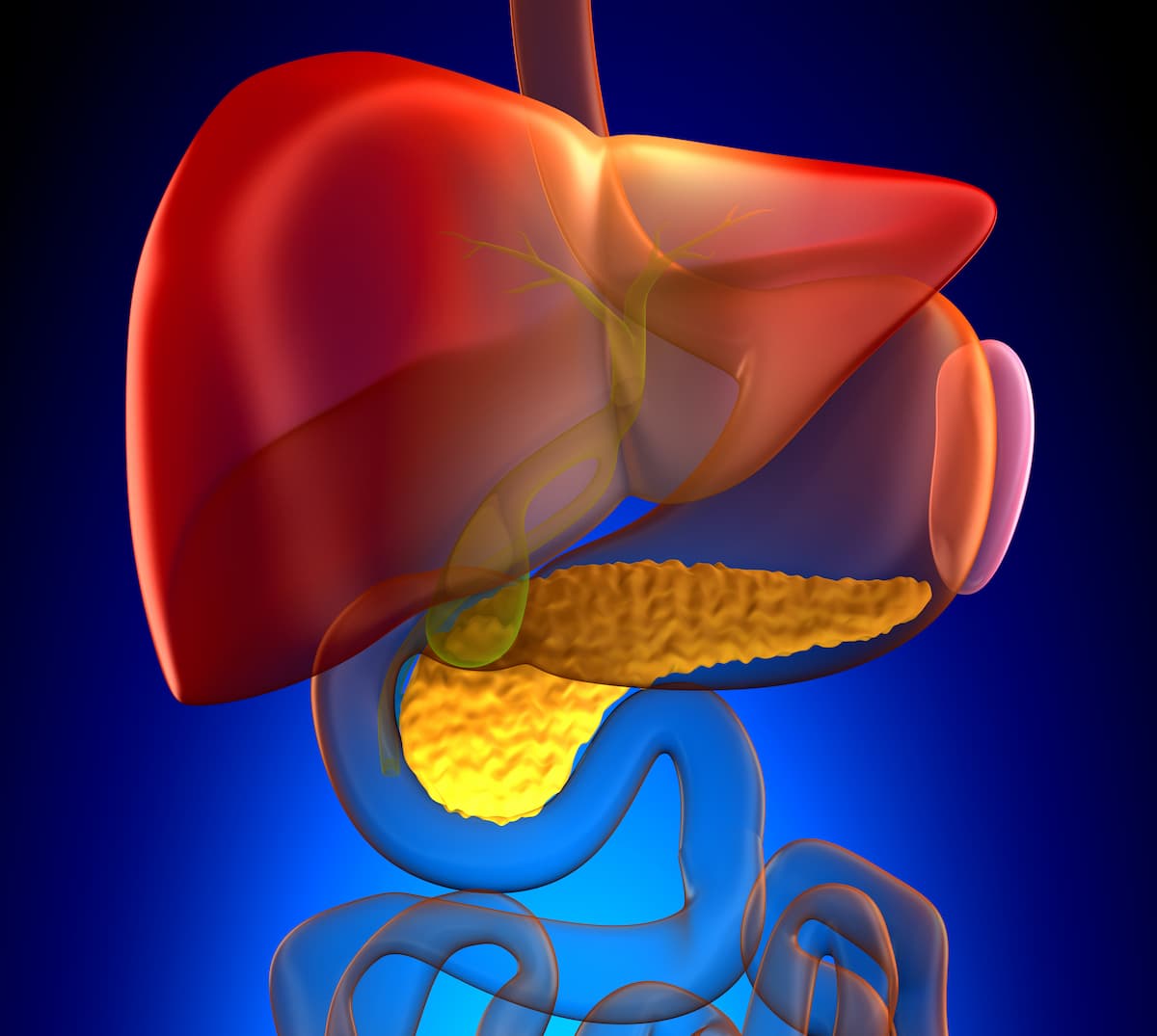SBRT Shows Positive 3-Year OS Rate in Newly Diagnosed Early-Stage HCC
SBRT demonstrated positive 3-year outcomes as a treatment in patients with early-stage HCC based on results from the phase 2 STRSPH trial.
Grade 3 or higher toxicities were experienced by 28.6% of patients with newly diagnosed early-stage hepatocellular carcinoma.

Stereotactic body radiation therapy (SBRT) demonstrated efficacy, specifically with survival and control, and low toxicities in a small cohort of patients with newly diagnosed, early-stage hepatocellular carcinoma (HCC), according to results from the phase 2 STRSPH study (UMIN000013011).
The median time to follow-up was 49 months (range, 4-96) in all patients and 56 months (range, 4-76) in survivors. The overall survival (OS) rate at 3 years was 82% (95% CI, 65%-92%), and at 5 years, it was 62% (95% CI, 43%-77%); the median OS was 64 months (95% CI, 46-82). The local control rate at 3 years was 93% (95% CI, 76%-98%), the local progression-free survival (PFS) rate at 3 years was 79% (95% CI, 62%-90%), and the recurrence-free survival (RFS) rate at 3 years was 59% (95% CI, 41%-73%).
Furthermore, the cancer-specific survival rate at 3 years and liver failure-free survival rate at 3 years was 97% (95% CI, 79%-100%) and 93% (95% CI, 76%-98%), respectively. The intrahepatic RFS rate at 3 years was 68% (95% CI, 49%-81%), and the extra-hepatic metastasis-free survival rate at 3 years was 100% (95% CI, 100%).
Thirteen patients (38%) experienced disease recurrence; 3 patients received transcatheter arterial chemoembolization (TACE) as salvage treatment, 6 received radiation therapy, 2 received resection, 1 received radiofrequency ablation (RFA), and 1 received other treatment.
“The Barcelona Clinic Liver Cancer algorithm recommends resection, transplantation, and ablation, such as RFA as the first treatment for patients with very early or early HCC, with an expectation of OS of 5 years or more for such patients. However, patients are often unable to receive standard treatment for several reasons,” wrote senior study author Satoshi Ishikura, MD, PhD, in the Department of Radiation Oncology at St. Luke’s International Hospital, St. Luke’s International University, in Chuo-ku, Tokyo, Japan.1,2 “The final results of this phase 2 trial suggest the efficacy and safety of SBRT for newly diagnosed early-stage HCC, which is unfit for other local therapies.”
The trial enrolled a total of 36 patients between January 2014 and July 2018, and enrollment closed early due to the slow accrual rate. The median age was 74 years (range, 57-85), and the majority of patients were male (64%), had an ECOG performance status of 0 (78%), had T1N0M0 stage disease (92%), and had tumors in the right lobe (66%).
Eligible patients were aged 20 to 85 years and had pathologically confirmed primary nodular HCC, a solitary tumor with a maximum diameter between 1 and 5 cm, and no prior treatment for HCC. Additional enrollment criteria included an ECOG performance status from 0 to 2, a Child-Turcotte-Pugh (CTP) score of 7 or lower, and appropriate organ function.
Exclusion criteria included uncontrolled ascites, history of radiation therapy in the liver, severe infection, esophageal varices with a high risk of bleeding, and coexisting cancers.
Treatment consisted of 40 Gy in 5 fractions over 5 to 10 days, and 95% of the planned target volume received the prescription; the maximum dose of the planned target volume was 143% to 150%. Scheduled TACE was permitted before SBRT.
The trial’s primary end point was 3-year OS rate; secondary end points included other survival outcomes and adverse events (AEs).
Grade 3 or higher toxicities were observed within 3 months of SBRT completion in 28.6% of patients, all of which were laboratory toxicities; grade 3 or higher toxicities of any type occurred in 37% of patients, and there were no grade 5 toxicities. Radiation-induced toxicities of grade 3 or higher were all non-laboratory and occurred in 11% of patients; they were liver failure/portal vein thrombosis, ascites/duodenal ulcer, dyspnea/hypoxia, and ascites.
Additionally, 34.3% of patients had their CTP score drop by 2 points or more. At 3 months, this worsening occurred in 8 patients; at 1 year, this occurred in 2 patients; and at 3 years, this occurred in 2 patients. Within 2 years, 1 patient died of liver failure, and within 3 years, another died.
In the 19 patients who died during follow-up, the causes were cancer progression in 6 patients, hepatic failure without HCC recurrence in 2, salvage surgery-related death in 1, and causes unrelated to the liver in 10.
The study authors noted that, despite the small number of patient registrations, the data were strong enough that they still indicated that SBRT may be a suitable alternative treatment for early-stage HCC.
Reference
- Sanuki N, Kimura T, Takeda A, et al. Final results of a multicenter prospective study of stereotactic body radiation therapy for previously untreated solitary primary hepatocellular carcinoma (The STRSPH Study). Int J Radiat Oncol Biol Phys. 2025;121(4):942-950. doi:10.1016/j.ijrobp.2024.10.040
- Reig M, Forner A, Rimola J, et al. BCLC strategy for prognosis prediction and treatment recommendation: The 2022 update. J Hepatol. 2022;76(3):681-693. doi:10.1016/j.jhep.2021.11.018.